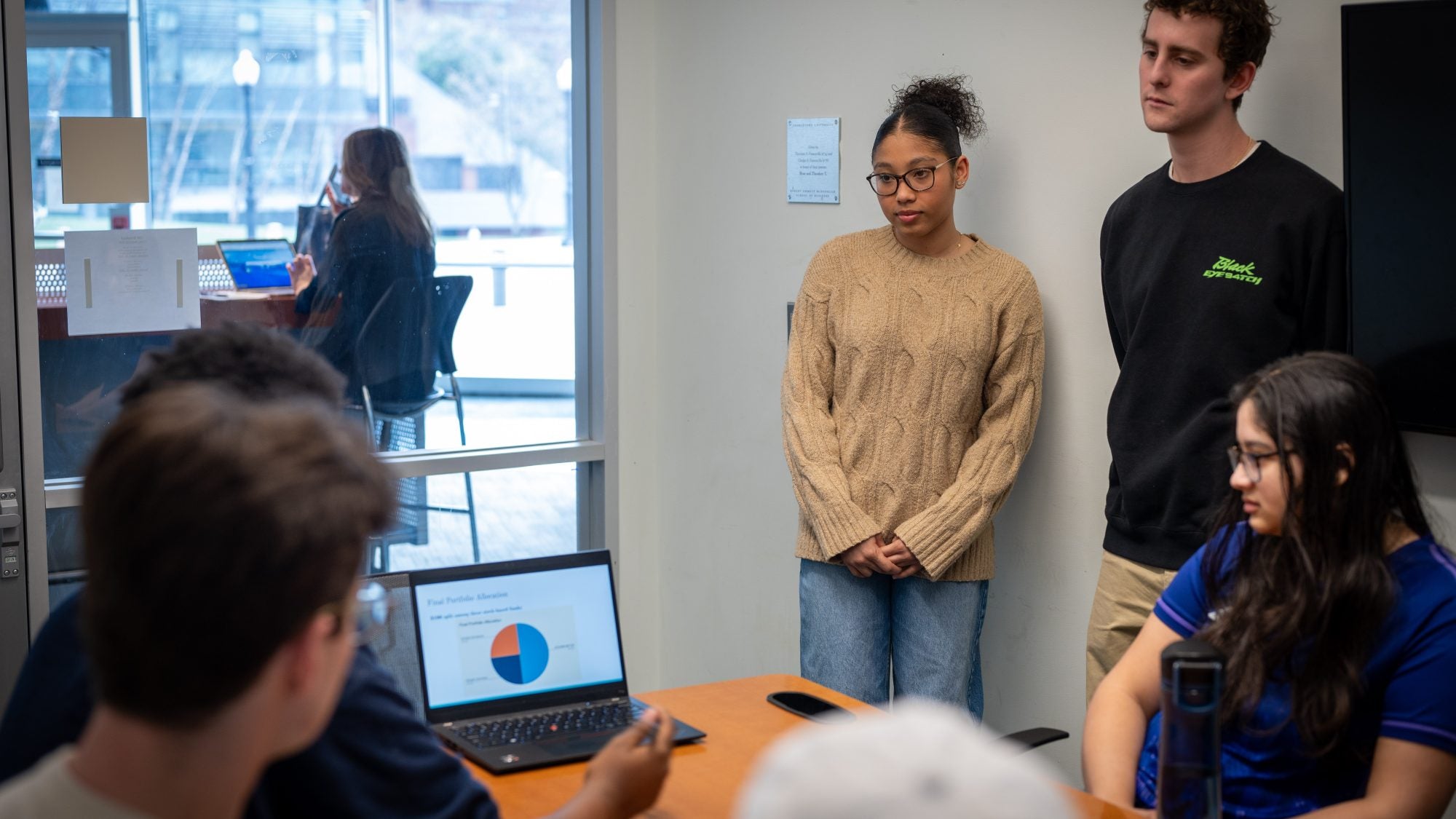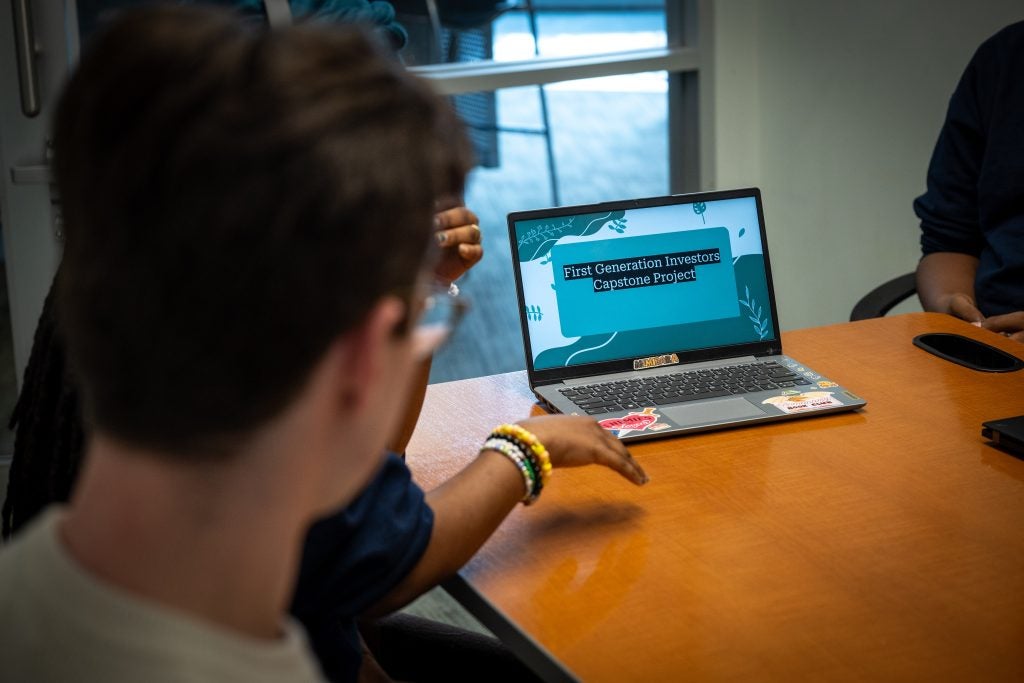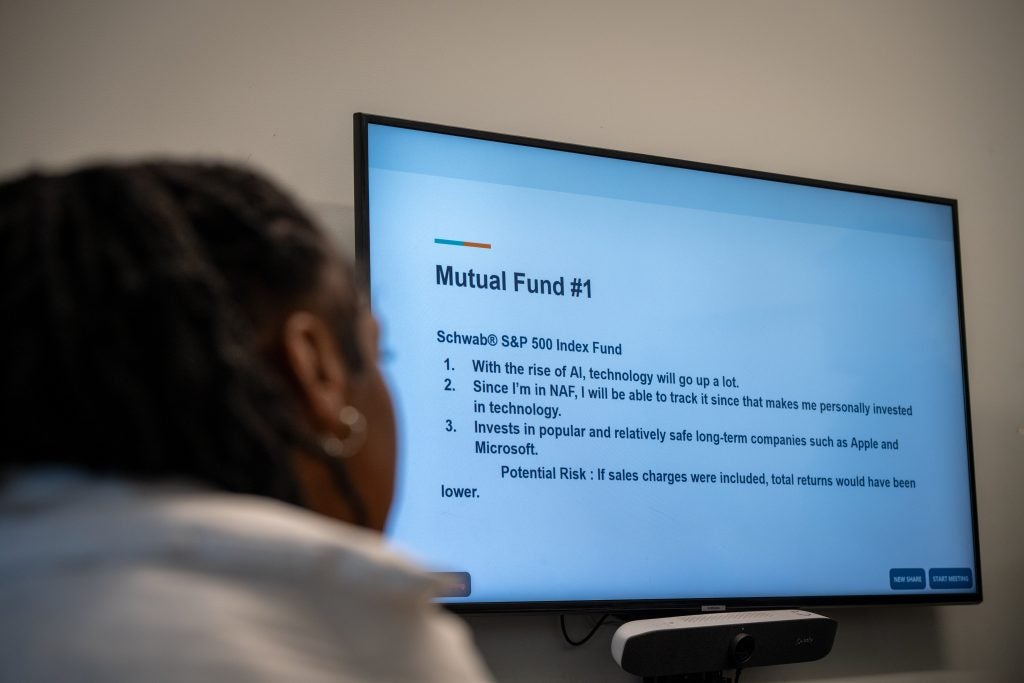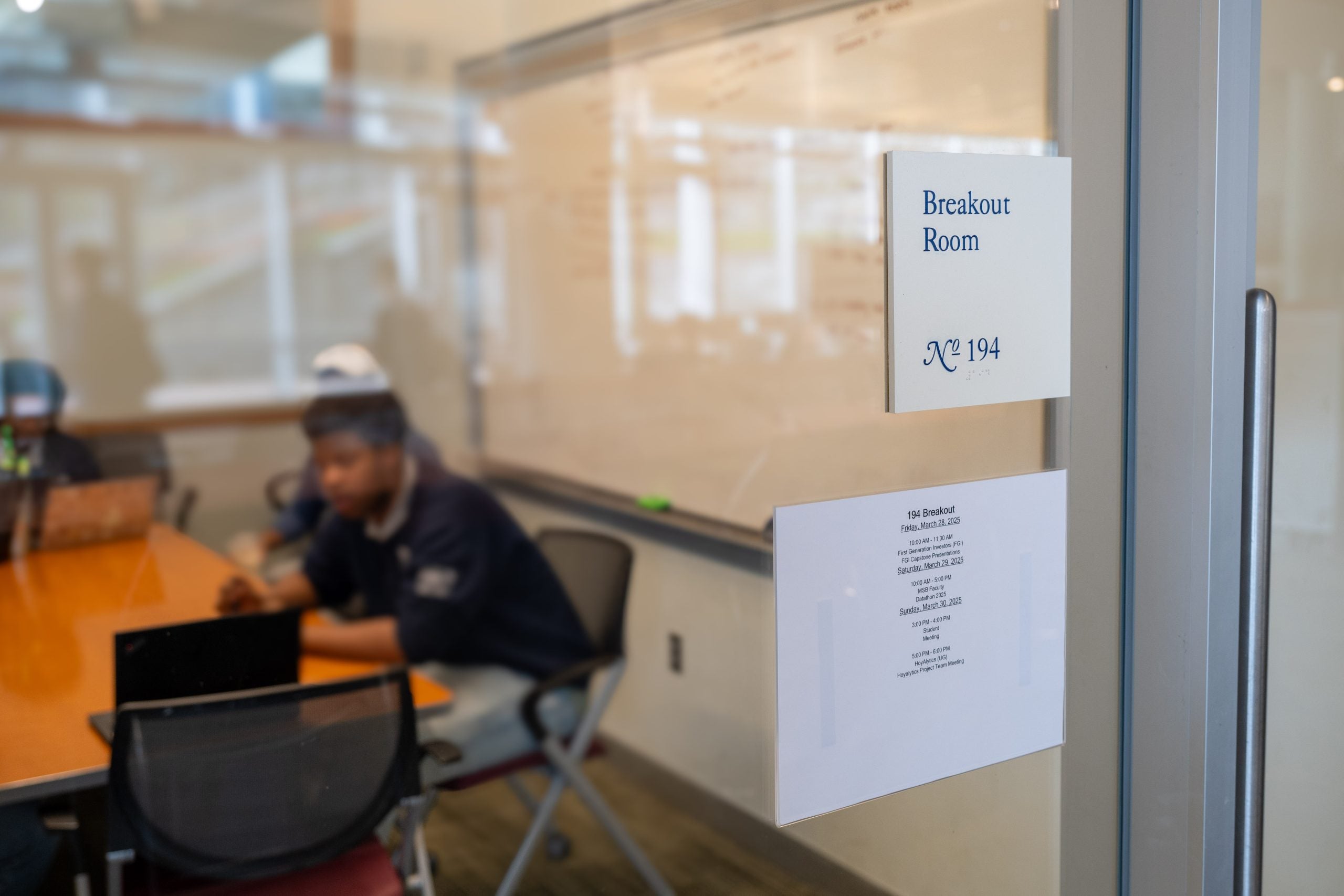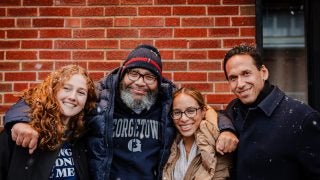Growing up outside of Athens, Georgia, McGinnis Harvey (B’25) noticed the everyday financial struggles of people living in his small town. He experienced it firsthand when his father got into an accident while he was in middle school, upending his family’s financial situation.
Harvey turned to entrepreneurship to help his family. In high school, he started a car detailing business and side hustle on eBay, reselling shoes, Nintendo systems and other used goods — anything he could get his hands on, he said.
At Georgia Southern University, Harvey explored his newfound interest in business. But he wanted to take it to the next level. He transferred to Georgetown in fall 2023 to study at the McDonough School of Business.
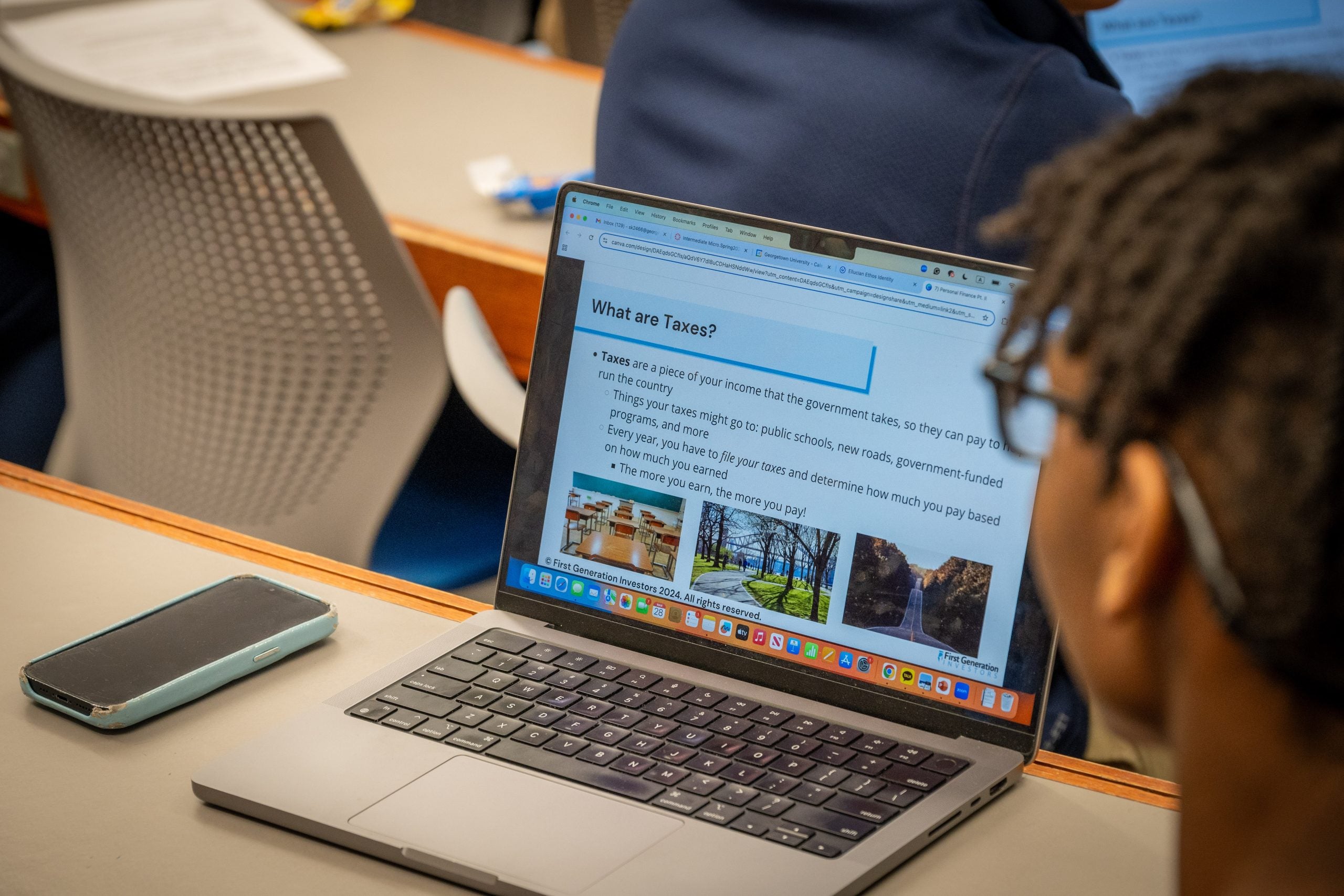
At Georgetown, Harvey discovered First Generation Investors (FGI), a chapter of a national club that brings financial literacy programming to nearly 100 underserved students in three high schools around Washington, DC. Harvey wanted to build on his entrepreneurial experience and use business for good — FGI was exactly what he was looking for.
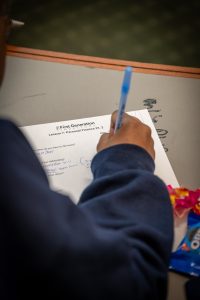
“I saw firsthand how poor financial decisions can lead to difficulties living paycheck to paycheck,” said Harvey, who is now president of the Georgetown chapter of FGI. “It was tough. When I knew there was an opportunity to help address that, it clicked for me.”
Every week, Georgetown students visit local high schools to teach personal finance classes. The lessons are part of the students’ normal curriculum and cover everything from what makes a mutual fund to credit scores and the basics of checking and savings accounts.
“The thought of saving up a few thousand dollars is out of reach for a lot of the students’ minds. The thought of saving up $1 million is unfathomable,” Harvey said. “But what we show them is just a few hundred dollars or $1,000 saved per month with a normal interest rate on the stock market, by the time you retire, it can be over $1,000,000.”
In the Classroom With First Generation Investors

Sophomore Taliyah Williams (B’27) spends her Friday mornings this semester at the Duke Ellington School of the Arts, just a few blocks from the Hilltop Campus. As a lead tutor and FGI’s vice president of education, Williams teaches a class of 18 students about financial literacy and investing.
For Williams, the mission of FGI is personal and a way to give back.
Growing up in a single-parent household, Williams saw her mom struggle to make ends meet while giving her and her sister opportunities through cheerleading and Girl Scouts. Since then, Williams has been determined to learn more about financial literacy and achieve financial independence.
Williams said it’s easier to relate to and teach students who are from a similar background as her. She especially appreciates teaching high school seniors, who are eager to learn more before they graduate and have more financial independence, she said.
Tutors follow a curriculum provided by the national organization First Generation Investors. Williams also supplements her lessons with nuggets from her classes at the McDonough School of Business.
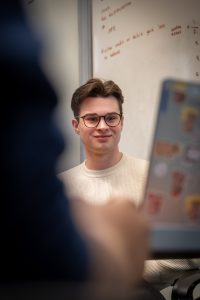
As a club that started with seven members in 2021, FGI has grown to over 60 members, allowing multiple tutors to be in the classroom and break students into small groups. The growth has made a significant impact, said Harvey, who remembers often being the only tutor in a classroom when he first joined the club.
“You’re seeing a face that doesn’t look too different from you giving these lessons in an intimate setting. That helps bring the most out of the students,” Harvey said. “By having that intimate connection, we see almost the entire class learning something, being engaged, having takeaways.”
One of Williams’ favorite lessons to teach is about financial diversification, or not putting all your eggs in one basket, she said.
“It opens their eyes to why it’s important to diversify their portfolios and have money in different aspects of your life,” she said. “Seeing their eyes opening to that is exciting to see. We have to teach these students the importance of all these things.”
At the end of the eight-week curriculum, Williams and other FGI tutors teach students about the college application and financial aid process. Williams said it’s one of the most impactful parts of the course because many of her students are unfamiliar with the application process and the benefits of a college education.
“This is something that can change their whole life,” she said. “To me, this matters because we’re going to underprivileged communities where these students aren’t growing up in an environment where they’re getting to learn about the need to save their money and the steps to save their money. A lot of kids are given clubs and classes they can take to learn about this, but they aren’t, which is why FGI is so important.”
